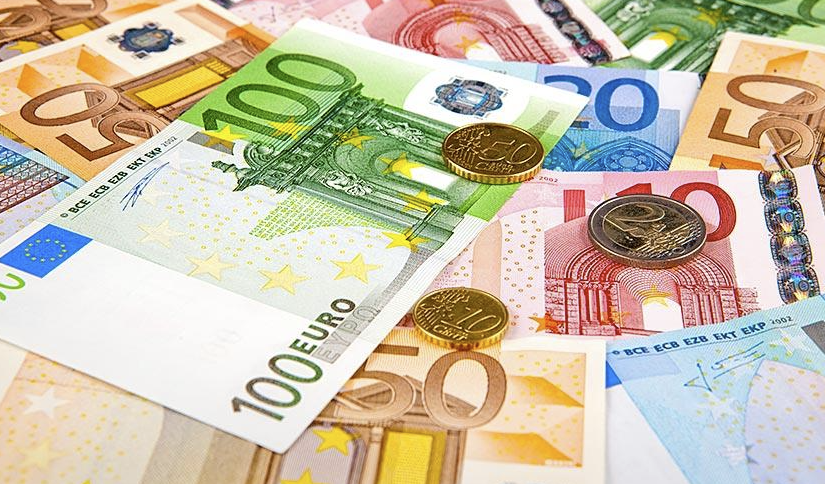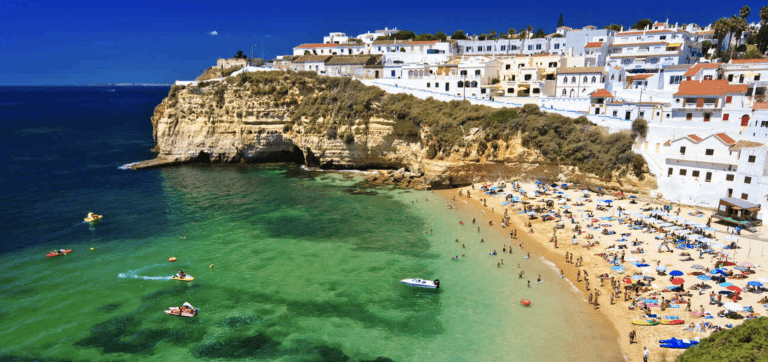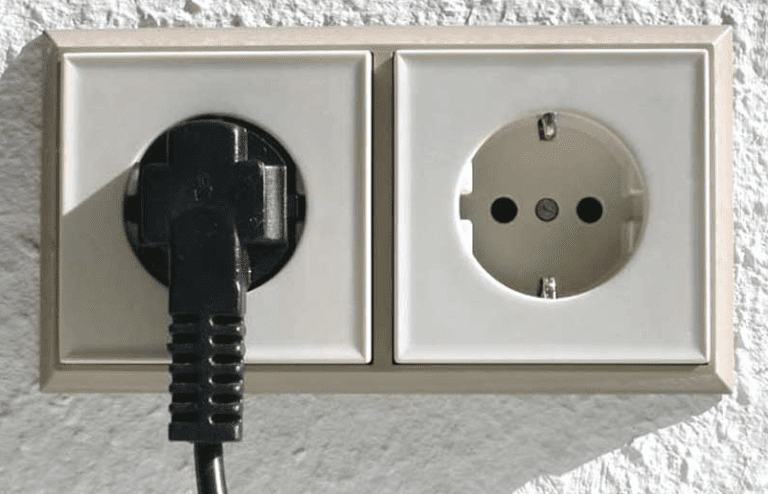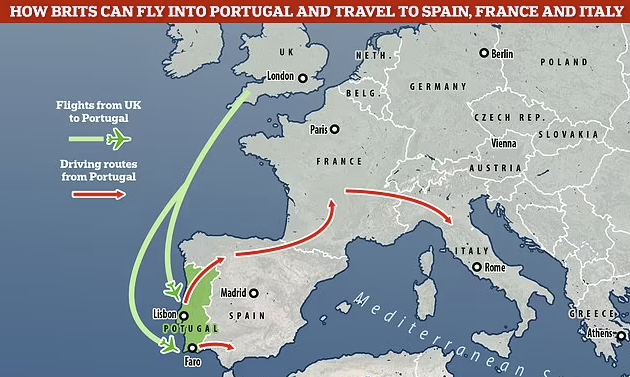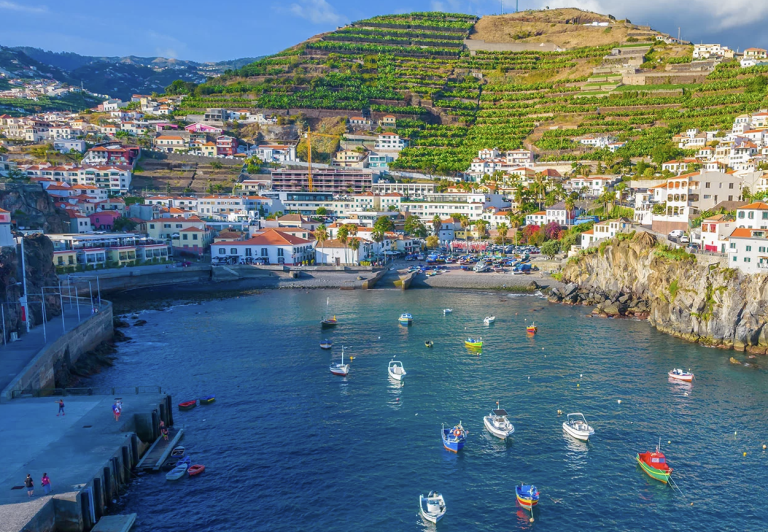What is the currency used in Portugal? This question often arises among travelers, bloggers, and anyone planning a visit to this beautiful European country. The Euro is the currency of Portugal, adopted when it joined the European Union.
In our comprehensive guide, we will delve into details about Portugal’s currency – from its historical introduction to various denominations and design features. We’ll also explore how these Euro banknotes can be an intriguing collectible item for numismatists worldwide.
Furthermore, we’ll discuss practical aspects such as accessing cash while traveling in Portugal using global providers like Revolut. You’ll also learn about buying foreign currency for your trip to Portugal and making use of online converters for accurate exchange rate calculations.
Last but not least, we touch upon ensuring adequate coverage with comprehensive travel insurance policies – because knowing what is the currency used in Portugal is just one aspect of smart travel planning!
Understanding the Currency of Portugal – The Euro
The Euro is the cool currency used by over 330 million Europeans. Portugal is one of the countries that jumped on the Euro train. It’s like a Euro party.
History of the Euro in Portugal
Portugal hopped on the Euro train on January 1st, 1999. Before that, they had their own currency called Escudo. But then they joined the European Union and decided to switch to Euros. Talk about a currency makeover.

Euro Notes: Different Denominations, Different Designs
Euros come in seven different denominations, from a‚¬5 to a‚¬500. Each note has its own color and size. It’s like a rainbow of money. And the designs? They feature windows, gateways, and bridges. It’s like a Euro art gallery.
Collecting Euros: A Hobby for Travelers
If you’re a collector, Euro coins are a treasure trove. Each country has its own version of the coins, so you can collect different designs. It’s like a Euro scavenger hunt.
Accessing Cash While Traveling in Portugal
When you’re in Portugal, you’ve got options for getting cash. Credit and debit cards, as well as ATMs, can be utilized to acquire cash while visiting Portugal. It’s like a cash buffet.
Revolut: The Traveler’s Best Friend
Revolut is a digital banking alternative that’s perfect for travelers. It’s easy to use, has low fees, and lets you convert currencies at the real exchange rate. With Revolut, you can withdraw cash from ATMs around the world without incurring any fees. It’s like a financial superhero.
Accessing Cash While Traveling in Portugal
If you’re planning a trip to Portugal, you gotta know how to get that cash money. Credit cards, debit cards, ATMs – we got options, baby.
Revolut: The Cool Kid on the Block
Revolut is the hippest way to handle your money while traveling. They let you hold and exchange 28 currencies, including Euros, at the best rates. Plus, their app has fancy features like spending notifications and budgeting tools. And if you lose your card, no worries – you can freeze it with a tap. Talk about peace of mind.
Credit Cards & Debit Cards: The Classics
Credit cards and debit cards are like the OGs of payment options. They’re widely accepted in Portugal, especially if they’re Visa or MasterCard. Just make sure to check for any sneaky foreign transaction fees before you jet off.
ATMs: Your Cash Oasis
ATMs, or as the locals call them, Multibancos, are scattered all over Portugal. Withdrawing cash is always available with your Cash Oasis ATMs, or Multibancos, 24/7. Be mindful of any charges your bank might impose for each withdrawal; it’s wise to keep track of those fees.
Tips for ATM Awesomeness:
- Always choose Euros instead of your home currency – it’s cheaper that way.
- Don’t make a bunch of small withdrawals – go big or go home to save on fees.
- Keep tabs on your balance to avoid being left with an empty wallet.
So, whether you’re a traditionalist with your cards or a modern traveler with Revolut, just make sure you’ve got the cash flow covered. Portugal is waiting for you.
Buying Foreign Currency For Your Trip To Portugal
If you’re headed to Portugal, it’s important to consider how best to manage your finances. Credit cards can be useful, but there are times when having physical cash is the better option – like in small shops or lesser-known areas.
Advantages and Drawbacks of Different Ways to Get Foreign Currency
The old-school way is through banks or exchange bureaus. They have competitive rates, but watch out for those sneaky service fees. Another option is withdrawing Euros from ATMs in Portugal. Better rates, but your bank might charge international transaction fees.
A modern approach is using Revolut. They offer multi-currency accounts with no hidden charges and fancy security features. Freeze your card if it gets lost or stolen – no sweat.
Use Live Comparison Tools Like Monito to Find the Cheapest Provider
Tools like Monito compare providers so you can get the best deal. Don’t let your money slip through the cracks – use Live Comparison Tools Like Monito to get the best deal and save on conversion rates with Multi-Currency Cards from Banks. Score big with your cash.
Multi-Currency Cards from Banks Save You on Conversion Rates
Banks now offer multi-currency cards. Load up multiple currencies at locked-in rates and avoid those pesky market fluctuations. No conversion fees – cha-ching.
Remember, compare your options before buying foreign currency. Small differences in exchange rates can mean big savings. Do your research and enjoy all that Portugal has to offer.
Ensuring Adequate Coverage With Comprehensive Travel Insurance Policies
Planning a trip abroad? Don’t forget to secure a comprehensive travel insurance policy. It’s like a safety net for your adventures, covering everything from lost luggage to unexpected medical expenses. Exploring why travel insurance is essential before you set off on your journey.
The Importance of Travel Insurance
A good travel insurance policy is your superhero against travel mishaps. It’s there to save the day when things go wrong, whether it’s a delayed flight or a medical emergency. It’s like having a guardian angel by your side, protecting your wallet and your peace of mind.
Coverage Options
Not all travel insurance policies are created equal, so make sure you understand what’s included in yours. Here are some common types of coverage to look out for:
- Trip cancellation or interruption: When life throws a curveball and you have to cancel or cut short your trip, this coverage has your back.
- Medical emergencies: If you get sick or injured during your travels, this coverage takes care of the medical bills and hospital stays.
- Luggage loss/damage: When your precious belongings go missing or get damaged, this coverage ensures you’re compensated.
- Emergency evacuation/repatriation: If you find yourself in a serious situation and need to be transported back home or to a specialized facility, this coverage has got you covered.
Selecting The Right Policy For Your Needs
Choosing the right travel insurance policy depends on factors like your destination, duration of stay, and planned activities. You can compare different options using websites like SquareMouth. Cheapest doesn’t always equal best when it comes to guarding yourself.
Making Claims On Your Policy
When it’s time to make a claim, follow the procedures laid out by your insurer. This usually involves providing proof of the incident (receipts/documentation) and submitting a completed claim form within the specified time frame. Each insurer has its own process, so read the fine print carefully. Some companies even have mobile apps to make the claims process easier and more efficient.
So, before you set off on your exciting adventure, make sure you have comprehensive travel insurance in place. It’s not just about protecting your wallet, but also about having peace of mind throughout your journey. Bon voyage.
Don’t forget to secure comprehensive travel insurance before your trip. It acts as a safety net, protecting you from mishaps like lost luggage and unexpected medical expenses. Choose the right policy for your needs and be prepared to follow the insurer’s claims process when necessary.
Making Use Of Online Converters For Currency Conversion
Planning a trip to Portugal? Don’t get caught up in the confusion of Portugal’s currency. Use online converters to convert your money into Euros and avoid any financial mishaps.
With online converters like XE, you can get real-time conversion rates and know exactly how much your home currency is worth in Euros. No more guessing games.
Budgeting Your Trip With The Help Of Online Converters
Once you know the exchange rate, you can set a daily spending limit based on Portuguese market prices. This way, you won’t blow your budget on expensive meals or tourist attractions.
Finding The Best Exchange Rates Using Comparison Tools
Comparison tools like Monito can help you find the cheapest provider for currency conversion. Don’t waste your money on unnecessary fees.
Tips To Keep In Mind When Using Online Converters And Comparison Tools
- Accuracy: Use reliable sources for conversion rates to avoid unexpected expenses.
- Variations: Exchange rates can fluctuate, so keep an eye on them before your trip.
- Fees: Watch out for transaction fees that can eat into your budget.
Using online converters and comparison tools is essential for hassle-free travel. Don’t let currency confusion ruin your trip to Portugal.
FAQs in Relation to What is the Currency Used in Portugal
– Political issues related to Portugal or the European Union.
– The economic crisis in Portugal.
– Negative aspects of traveling to Portugal.
What currency does Portugal use currently?
Portugal uses the Euro (€) as its official currency.
How much is $1 US in Portugal?
The value fluctuates, but you can check current exchange rates on a reliable currency converter.
Does Portugal accept American money?
No, businesses in Portugal typically only accept Euros. It’s best to convert your dollars before traveling.
What is the best way to pay for things in Portugal?
Using a credit card with no foreign transaction fees or withdrawing cash from ATMs are good options when paying for goods and services in Portugal.
Conclusion
The currency used in Portugal is the Euro, because who needs pesetas or escudos anymore?
Introduced in 2002, the Euro has become widely accepted throughout the country, making it rain with European style.
The different denominations and design features of Euro notes add to their collectible appeal, so you can pretend you’re a fancy currency connoisseur.
When traveling to Portugal, it’s important to have access to cash, because you can’t pay for pasteis de nata with hugs and smiles.
Global providers like Revolut can be useful for transactions, because who needs to deal with old-fashioned banks?
Buying foreign currency for your trip can be done through various methods, each with its own advantages and drawbacks, so choose wisely, my friend.
Using live comparison tools like Monito can help you find the cheapest provider, because saving money is always a good idea.
Additionally, ensuring adequate coverage with comprehensive travel insurance policies is essential, because you never know when you’ll need a superhero to save the day.
Lastly, online converters are a convenient tool for currency conversion when planning your trip, because math is hard and we all need a little help sometimes.

